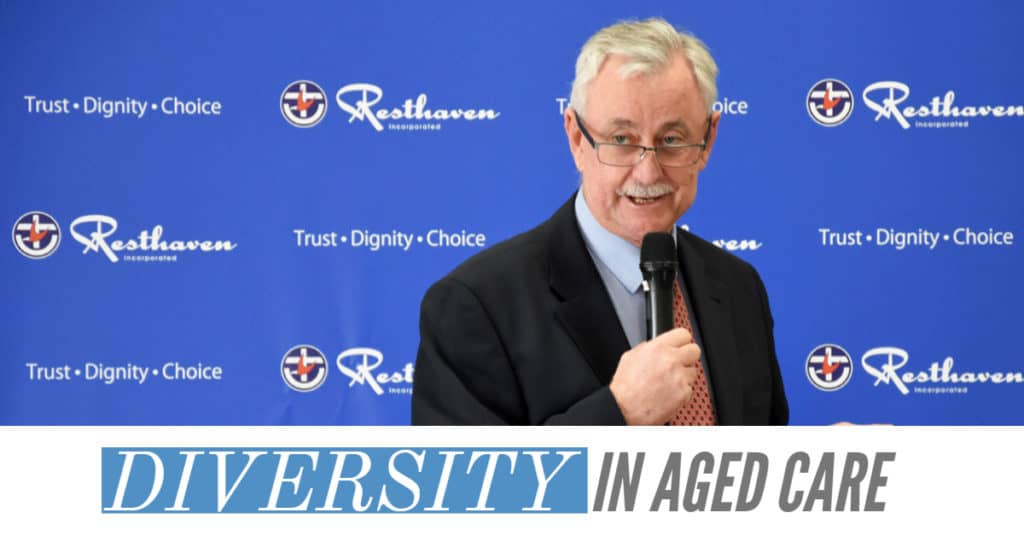
Diversity in Aged Care
Diversity is a strong and celebrated aspect of our community.
In aged care, as in all society, people may have particular needs because of their individual lived experiences, which can translate to special considerations and personal needs in relation to aged care services.
Aspects of diversity to take into consideration include an individual’s cultural heritage; the person’s lived experience as a member of the LGBTI community; whether an individual has experienced homelessness; whether they are from rural and remote areas, or have social and financial disadvantage, and any combination of these and other diversity characteristics.
Diversity adds to the richness of our community, our relationships and our families. But we know that for some individuals, their own lived experience, as a person with diversity characteristics, may include disadvantage, discrimination, and feelings of isolation that may impact on their view of, and access to, aged care supports.
I acknowledge there are many and various reasons that individuals may not feel comfortable in seeking support with their daily needs from aged care service providers. This is often amplified for people of diverse backgrounds, due to prior trauma, language and literacy barriers, and misconceptions about services.
The Australian Government published the Aged Care Diversity Framework in recognition of perceived and actual barriers to accessing aged care services. The Framework provides guidance to organisations in how to address these barriers and become more inclusive.
The aged care workforce, by nature, is also diverse. What is shared is the desire to work together with older individuals, who benefit from support to maintain their quality of life.
The key point is working together and in partnership with individuals, and understanding the individual’s particular lived experience which influences their service needs, preferences and choices. We are not all the same, and we acknowledge and respect those differences and seek to respond to them in an appropriate manner.
I urge older people to consider accessing support options, knowing that the diversity of their lived experiences and current needs will be respected and honoured.
If an individual’s experience does not contribute to their quality of life, then it is of the utmost importance that they share their concerns with their service provider, or with an independent advocacy service, such as the Older Persons Advocacy Network (Phone: 1800 700 600).
